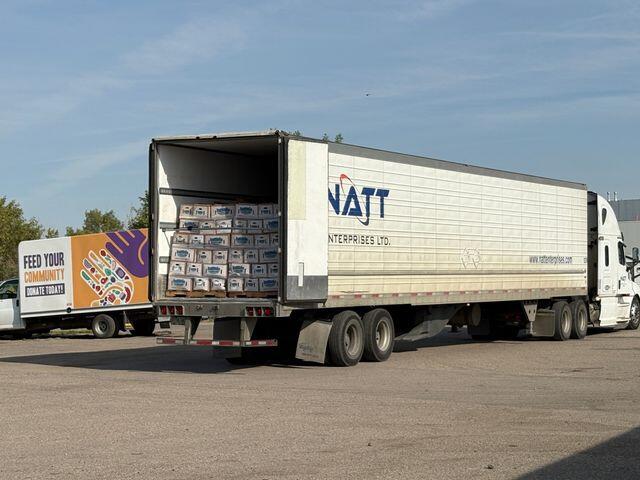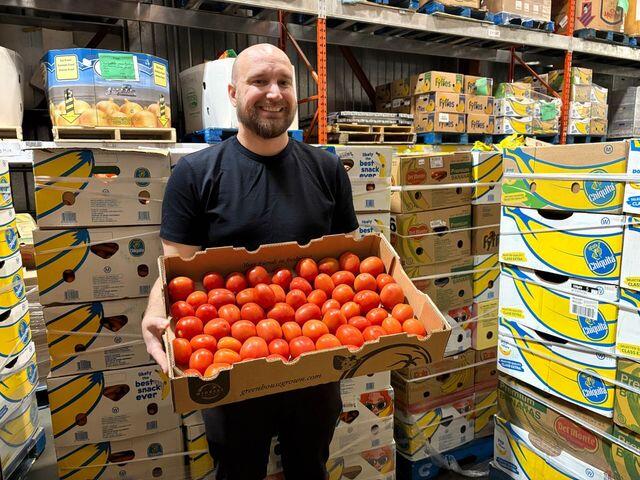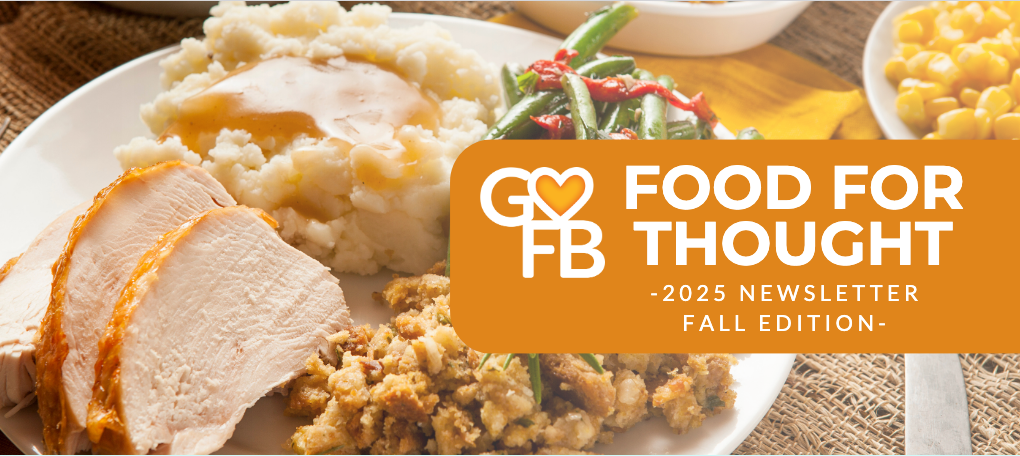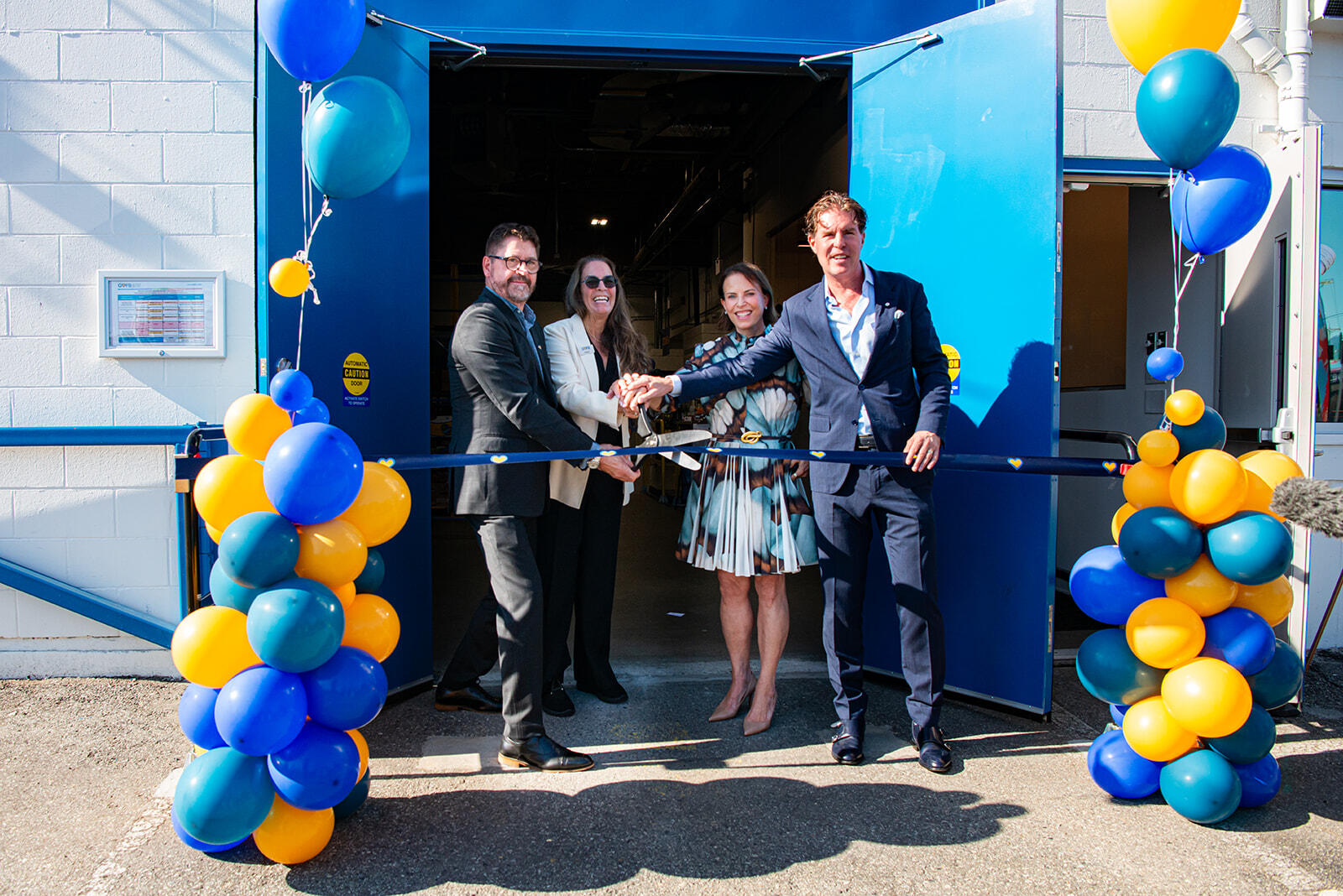Cross-Provincial Food Bank Alliance Between Greater Vancouver Food Bank and Regina Food Bank Targets Surplus Redistribution
September 2nd, Burnaby BC – Greater Vancouver Food Bank (GVFB) and Regina Food Bank (RFB) have teamed up to redistribute over 90,000 lbs. of fresh foods between the regions. This alliance was formed after conversations of abundance sparked solutions of trading goods to serve those in need.
While Saskatchewan is known for their pulses and grains, British Columbia has a variety of fresh produce such as zucchini, carrots, potatoes and squash, making this trade an even bigger milestone. Each food bank will send a truck load, an estimated 45,000 lbs. of surplus foods they’ve received from local farmers. In return, they receive an equivalent weight of foods that are less available in their region, giving their clients access to a more varied and nutritious diet.
“Here in Saskatchewan, we’re proud to be part of the region that feeds the world, our prairies produce the grains and pulses that nourish people across the globe. We’re incredibly excited to partner with the Greater Vancouver Food Bank in this groundbreaking alliance that connects the abundance of our prairies with the bounty of the west coast. This is the first of what we hope will be many exchanges that prove hunger isn’t about scarcity, it’s about distribution. While others talk about food insecurity, we’re loading trucks and moving 90,000 pounds of nutritious food to where it’s needed most. We’re done with endless meetings and feasibility studies, people are hungry today, and we’re acting today. This partnership cuts through red tape and bureaucratic delays to deliver real solutions our communities deserve, and we’re committed to expanding this model to ensure no Canadian goes hungry while perfectly good food goes to waste. – John Bailey, CEO, Regina Food Bank

The trade was facilitated by the Greater Vancouver Food Bank’s connection to CDS Ltd, who offered a transfer price of $6,000 to distribute the goods both ways. The freight costs, handled by the GVFB, were paid for in full through the recent sales of their juice, made from surplus apples and mandarin oranges, currently sold at limited Loblaw’s stores in Greater Vancouver. The 100% fruit juice, making a revenue of $8000 in the first month on shelves, was one of the items that the Regina Food Bank received for their clients.
“The issue isn’t a shortage of food—it’s a distribution problem. There are countless examples that prove we produce more than enough to feed everyone. This full-circle moment highlights something powerful: food that would otherwise end up in landfills can be redirected to reach children and families who go to bed hungry. By turning surplus produce into juice, we generate enough revenue to cover the cost of shipping food across the country. This allows us to trade valuable resources, feed people in need, and reduce unnecessary food waste that’s still fit for human consumption. It troubles me deeply that hunger persists, and I’m committed to challenging the system and creating real solutions.” – David Long, CEO, Greater Vancouver Food Bank

In Saskatchewan, the Regina Food Bank leads multiple successful farm-to-foodbank initiatives working directly with producers and agri-food sector leaders to connect agricultural abundance with families in need. Last year, RFB served over 226,000 points of service last year, while the Greater Vancouver Food Bank saw 832,000 visits through direct distribution and agency partners. United by a shared mission to advance food security, both organizations are committed to ensuring healthy, edible food reaches those in need—not the landfill. Last year, RFB diverted over 3.8 million pounds of food, while GVFB partnered with local farmers to promote the BC Farmer Donation Tax Credit, receiving more than 2.8 million pounds of surplus produce from one farmer alone and distributing nearly 10 million lbs. of food to its clients.
As demand in food banks increase across Canada, Regina Food Bank and the GVFB are working on solutions to ease the strain. This new partnership is the first step in changing the way food banks operate. With the ability to redistribute surplus food throughout the country, food banks can create access to nutrient dense foods available to all Canadians, showing that there is no shortage of food, but instead, a distribution problem.
About the Regina Food Bank: The Regina Food Bank is a charitable community-based organization working to fight food insecurity through nutritious food distribution, education, and support programs. We restore dignity, health and hope for our clients. We provide programs and service directly and through partnerships in the areas of food provision, essential skills development and connections to the community supports and opportunities.
To learn more visit: www.reginafoodbank.ca
About the Greater Vancouver Food Bank: The Greater Vancouver Food Bank is a non-profit organization with a mission to provide healthy food to those in need. The GVFB provides support through direct distribution to those in Vancouver, Burnaby, New Westminster and the North Shore, as well as through 160+ agency partners both locally and provincially. Through this model, the GVFB envisions a British Columbia where everyone has access to healthy food through efficient distribution, innovation and partnerships.
To learn more visit: www.foodbank.bc.ca
Media Contacts:
Jaimie Ochrey, Communications Officer, Greater Vancouver Food Bank
jaimieo@foodbank.bc.ca, 778 879 6907
Evelyn Cerda, VP Impact & Partnerships, Regina Food Bank
ecerda@reginafoodbank.ca , 306 241 9344





